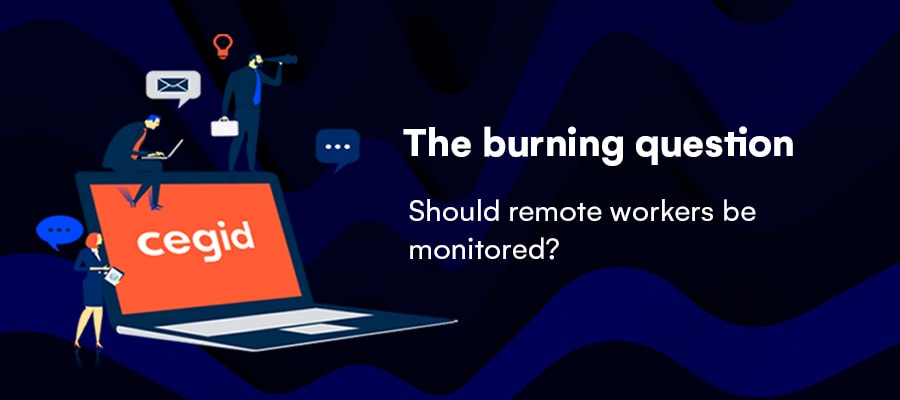Talent Management
Should remote workers be monitored?
22 February 2021

The 1979 Ridley Scott sci-fi horror classic coined the phrase “In space, no one can hear you scream.” If we were to borrow and adapt this famous slogan for the Coronavirus Era, it would read: “At home, no one can see you work.” But it is a legitimate concern: many companies fear employees will simply slack off. How do they react? Well, according to several studies, they turn to remote monitoring software. As of June, the demand for this type of solution had increased by more than 50% worldwide compared to last year. In France, according to a survey of more than 1,400 people carried out last fall, 45% of employees work for a company that monitors work-from-home employees. In three-quarters of cases, this novelty is a direct result of the pandemic.
But, is it right to speak of espionage or policing? Certainly not. First of all, because these systems are lawfully regulated. In France as in Quebec, the means of control must be adapted to the task at hand and is must be disclosed to the parties involved. In France, prior consultation with employee representatives is mandatory. Secondly, because these software programs can also look out for an employee’s best interests: their actual working times will be logged, overtime hours recorded and their workload will be better understood.
Individual productivity has either been maintained or increased.
The real question then is more about need. Not all companies have been confronted with a drop in productivity. For 75% of work-from-home employees, individual efficiency has been as good or even better than normal. The figures are lower for collective tasks, but this is more related to the lack of spontaneity of remote exchanges rather than laziness.
Remote working is an organizational change that involves adapting the way managers work: less micromanagement, and better-defined individual objectives aligned with those of the company, and regular performance monitoring as enabled by the Cegid Talent software suite. This pandemic is actually proving to be a unique opportunity to not just develop trust between managers and executives but to help companies mature.


